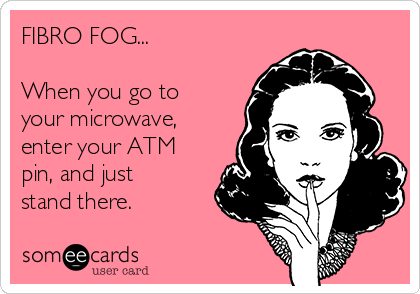How many times have you’ve been told your symptoms are all in your head? Whether explicitly stated or indirectly implied, we’ve all encountered that one person (or in some cases – many persons) who can’t seem to believe that our fibromyalgia is real.
To be fair – we may not look sick – so it may be difficult for others to believe us since the outward signs of suffering aren’t always obvious. While we may not look sick on the outside, below the surface we are suffering physical, mental and emotional pains that are all too real to us.
Another common misconception is that pain is the only symptom of fibromyalgia. The reality is that those of us with fibromyalgia struggle with a variety of other debilitating and uncomfortable symptoms as well. Like the pain – these symptoms are not just “in our heads.” They are real and we often have to cope with many of them on a daily basis. Lets take a look at 25 real symptoms of Fibromyalgia:
Pain Symptoms:
While pain isn’t the only symptom of fibromyalgia – it is arguably one of the most debilitating. What many don’t understand is just how widespread the pain from fibromyalgia can be. The National Fibromyalgia & Chronic Pain Association describes it as “widespread pain and tenderness to touch that may occur body wide or migrate over the body.”
Symptoms of fibromyalgia pain often include widespread muscle pain, tender joints, achy bones, cramps, stiffness, numbness and tingling. The severity of pain can vary from patient to patient – with some experiencing mild pain and others experiencing more severe pain. Pain and tenderness can also flare-up unexpectedly.
When diagnosing fibromyalgia, doctors use criteria published by the American College of Rheumatology in 2010. Part of these criteria includes 19 different trigger points that are often sources of fibromyalgia pain. Patients diagnosed with fibromyalgia with experience pain in at least 7 different areas.
Energy & Sleep Symptoms:
As if the pain weren’t enough – fibromyalgia also takes its toll on our energy levels and sleep cycles as well. Symptoms might include chronic fatigue, weakness, exhaustion, insomnia and other sleep problems.
Many with fibromyalgia deal with sleep problems like insomnia. Others are able to sleep the entire night but wake up feeling exhausted because their sleep cycles are disrupted throughout the night – preventing their body from entering the stage of deep sleep associated with restoring body tissue and boosting the immune system.
The pain and disruptions in sleep affect the body’s energy levels – leaving us fatigued and feeling weak. Chronic fatigue syndrome (CFS) is common among fibromyalgia sufferers. While we may not always look it on the outside – we are often struggling with fatigue and exhaustion but doing our best to keep up.
While there isn’t a simple fix to sleep problems and fatigue – there are various “best practices” that can help you fall asleep faster and increase your chances of getting deep, restful sleep. These 13 tips from memoryfoammattressguide.org are a good place to start:
Gastrointestinal Symptoms:
Fibromyalgia isn’t easy on the gut either! There are various gastrointestinal related symptoms, including nausea, Irritable Bowel Syndrome (IBS), abdominal pain, slow digestion and constipation. These symptoms – as you can well imagine – can be extremely uncomfortable. For those of us already dealing with pain and fatigue these gastrointestinal symptoms make it even more difficult to function normally. They can affect all aspects of our lives, from careers to friendships to family relationships.
Head & Cognitive Symptoms:
Ever driven a few miles to the grocery store only to walk inside and have no idea why you’re there? Or maybe you have sticky note reminders plastered all over your house because you’re more forgetful now? If so – you’re not alone.
The stress of fibromyalgia often contributes to an entirely new set of problems related to the head and brain. These can include problems with concentration or memory (a.k.a. fibro fog), difficulty speaking, migraines or severe headaches and increased sensitivity to light and noise. Those experiencing cognitive difficulties like poor concentration or memory loss often describe it as a fog that has settled over the mind – clouding their ability to think or remember things clearly (hence the nickname, “fibro fog”.)
Besides the cognitive difficulties associated with fibro fog, many with fibromyalgia also suffer from re-occurring migraines and headaches. There can also be an increased sensitivity to sensory overload from things like light and noise – both of which can trigger or exacerbate painful headaches and migraines.
Mental & Emotional Symptoms:
While fibromyalgia takes quite the physical toll on the body – it can take an equally significant toll on the mental and emotional health of those suffering it. The physical symptoms of fibromyalgia can impact every aspect of our lives – creating heightened levels of stress and worry. This increased anxiety can lead to a number of problems, including depression, irritability, mood disturbances and more.
Many suffering from fibromyalgia or other chronic illnesses will experience feelings of isolation and loneliness as they learn to cope with their symptoms. This can lead to depression. In fact, according to statistics reported by the CDC, adults with fibromyalgia are 3.4 times more likely to have major depression that peers without fibromyalgia. Coping with extra stress of a chronic illness is important to maintaining emotional health and stability. Coping methods might include professional counseling, meditation, deep breathing and other techniques.





